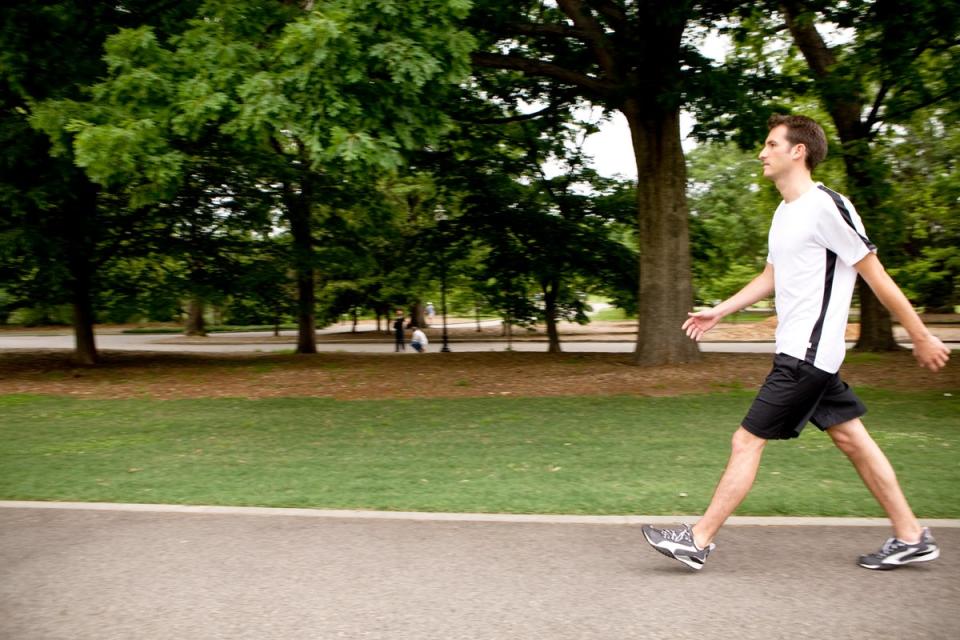Author and brain coach Jim Kwik: Knowledge is power, learning is our superpower
Listen here on your chosen podcast platform.
Jim Kwik had suffered three brain injuries by the time he turned 12. The most significant happened when he was just five. “I had an accident where I fell off a chair and headfirst into a heater,” the entrepreneur and founder of Kwik Learning tells me.
“I developed learning difficulties and processing issues. I had migraines every day, and balance issues too. It took me three years longer [than it should have] to learn to read. I was slowing down the rest of my class and being teased and bullied for it.” In an unadvisable turn of phrase, one of his teachers at the time leapt to his defence and told the class to quit taunting “the boy with the broken brain”.
On the latest episode of Brave New World, Kwik reveals how he turned this phrase on its head, becoming a world expert on brain health and optimisation. His tips and tricks on how to improve cognition, outlined in his bestselling book, Limitless (2020), are uniquely accessible. “In school they teach you what to learn, but less so how to learn,” Kwik says. His learning disabilities pushed him to think long and hard about the latter. “How does my brain work?” he recalls wondering. “And how can I work my brain?”
Kwik was born in Westchester, New York. He was the child of immigrant parents who worked multiple jobs, and lived with him and his grandmother “in the back of a laundromat”. He was, effectively, raised by his mother’s mum, who passed away due to Alzheimer’s when Kwik was seven. “It was very confusing,” he reflects, “going through my own learning difficulties and seeing a grown-up go through the same.” Witnessing her mental deterioration “definitely informed what I went on to do”.
Following his traumatic brain injury and years of suffering, Kwik eventually caught up with his classmates by devouring comic books — namely The X-Men “because they were misunderstood and didn’t fit in. I could relate”. After barely getting into college and on the verge of dropping out, he found a mentor in a friend’s father, who inspired him to learn more about the organ between our ears.

Kwik became obsessed with accelerated learning techniques. In a move that would one day make him famous, he taught himself to speed read: of all his teachings, this is the one for which he is best known. Though traditionally seen as scanning pages for essential information, Kwik’s version of speed reading is more holistic. His method has won plaudits from executives and professionals worldwide. Today, “we train plenty of doctors,” he says. You’d hope, he laughs, that they weren’t just scanning their notes and capturing “the gist of it”.
In 2001, Kwik founded Kwik Learning, an online platform that later spawned Kwik Brain, one of the world’s top educational podcasts. Today, he uses his platform to advocate the importance of brain strength. Not one to shy away from rhyming clichés, he sees the brain as holding the key to everything, from money (“the faster you can learn, the faster you can earn”) to physical health (“when your body moves your brain grooves”).
Quite refreshing, from someone traditionally lumped in with fitness freaks and biohackers. His is a more accessible and universal message: that we can always heal our brains and, in turn, heal all the rest. Anyone vaguely cynical would cringe at phrases like “sitting is the new smoking”, or “your brain is like a muscle: use it or lose it”. Martin Amis would have had a field day. But moving past the marketing speak in which Kwik is so well versed is to discover a treasure trove of information that is delivered simply and cogently — and which I have, personally, found highly beneficial.

Kwik’s top tips for a healthy brain:
1. Increase your intake of omega 3 fatty acids, particularly DHA. These are found in cold water fish like tuna and salmon.
2. Reduce your sugar intake, as glucose spikes can lead to brain fog.
3. Reduce negative thoughts as you would the impulse to eat a doughnut. It doesn’t mean you need to ban the thoughts, but to recognise that when they come up, they are better ignored.
4. Keep moving throughout the day, even if it’s just a brisk walk around the office once an hour. More blood flow means more oxygen and brain power. When it comes to active exercise, racket sports are best.
5. Keeping a clean and tidy environment to work in will enhance clarity of thought, just like clearing the tabs on your device will help it perform better.
6. Keep away from your phone for the first 30 minutes after waking and the last 30 minutes before bed. This helps ward off information fatigue syndrome.
7. Avoid outsourcing all organisational tasks to your phone. Build memory by keeping mental track of your own diary, for example.
8. Eat dinner with your family. Social connection is one of the most powerful ways to combat mental illness.
9. Don’t think that when you leave school, learning stops. Recognising it’s a lifelong practice will open you up to more knowledge.
10. Take the stairs.

 Yahoo News
Yahoo News 
